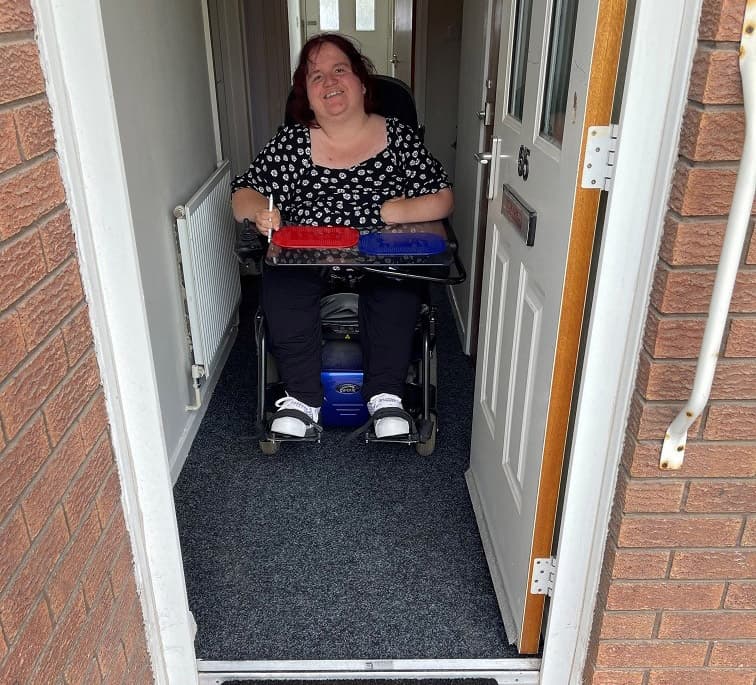57 percent with housing accessibility needs struggle to have a bath or shower in their own homes

Disabled adults across the UK are struggling with inaccessible homes, according to research commissioned by disability charity Leonard Cheshire.
One in four respondents with housing accessibility needs say it is difficult to get into their own homes. Leonard Cheshire says this equates to an estimated one million working-age disabled people across the UK.
The shocking findings follow the charity’s 2020 research showing disabled people facing long delays for vital home adaptations. Problems are compounded by huge waiting lists for suitably accessible social housing, according to Habinteg Housing Association.
Leonard Cheshire’s latest research shows people who have difficulty finding accessible homes can face severe consequences, with three in ten saying it left them unable to work.
The charity’s UK-wide representative survey shows many disabled people have housing accessibility needs and continue to face challenges in their current property.
More than half of people with housing accessibility needs say it is difficult to take a bath or shower, while 53 percent face difficulty using the stairs safely.
Gemma Hope, Director of Policy at Leonard Cheshire, said: “Underfunded councils need more resources to ensure they can meet rising demand for vital home adaptations. A lack of accessible homes is restricting people’s independence, as well as their opportunities to work and socialise. Disabled people need a place to live that is safe, comfortable and meets their needs.”
Recent research from Habinteg Housing Association in England reveals 20,000 people are waiting for a wheelchair accessible home and a further 104,000 people are waiting for “accessible and adaptable homes.”
Nick Apetroaie, CEO of Habinteg Housing Association, said: “Accessible homes have an enormous impact on people’s lives. They provide dignity and independence, help people stay in work and keep families together. Yet there is a chronic shortage of accessible homes across the UK.
“In July, the government committed to changing building regulations to make new homes accessible by default. We need to accelerate that change because accessible homes are better for everyone, disabled or not.”
Leonard Cheshire and Habinteg are calling for the government to honour its commitment to make all new homes accessible and adaptable (also known category 2). Both charities have campaigned to ensure at least 10 percent of all new homes are wheelchair accessible and are also calling for local authorities to assess the need for wheelchair accessible housing in their area.

